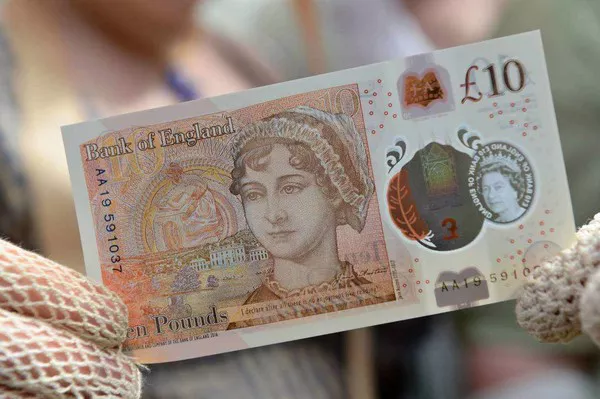Coin collecting is a fascinating hobby enjoyed by millions around the world. Whether driven by a passion for history, numismatics, or simply the allure of valuable treasures, collecting coins offers enthusiasts a rich and rewarding experience. Understanding the value of coins is fundamental to this pursuit, as it not only adds excitement to the hobby but also ensures informed decision-making when buying, selling, or trading.
Factors Influencing Coin Value
Several factors contribute to the value of a coin, including rarity, condition, demand, historical significance, and mint year. Rarity is perhaps the most critical factor, as coins produced in limited quantities are inherently more valuable due to their scarcity. Additionally, the condition of a coin significantly impacts its worth, with well-preserved specimens commanding higher prices than those showing signs of wear or damage. Demand plays a crucial role as well, as coins sought after by collectors or investors can see their values soar. Historical significance, such as coins tied to significant events or historical figures, can also increase their desirability and value. Lastly, the mint year of a coin can influence its worth, with certain years being more coveted by collectors for various reasons.
Understanding Coin Grading
Coin grading is a standardized system used to evaluate the condition of a coin, ranging from poor to pristine. The Sheldon Scale, developed by Dr. William Sheldon in the 1940s, is the most widely accepted grading system in use today. Coins are graded on a scale from 1 to 70, with lower numbers indicating poor condition and higher numbers representing coins in exceptional condition. Grading considers factors such as surface preservation, luster, strike quality, and any signs of wear or damage. A coin’s grade can significantly impact its value, with even slight differences in condition leading to substantial differences in price.
The Role of Coin Certification
Professional certification provides assurance of a coin’s authenticity and quality, which can increase its value and desirability among collectors and investors. Organizations such as the Professional Coin Grading Service (PCGS) and the Numismatic Guaranty Corporation (NGC) employ expert graders who thoroughly examine coins and assign them a grade. Certified coins are encapsulated in tamper-evident holders with a unique serial number and grade designation, providing peace of mind to buyers and sellers alike.
Popular Valuable Coins
Several coins are renowned for their high values and historical significance. Among these are the 1804 Silver Dollar, often called the “King of American Coins,” the 1933 Double Eagle, which holds the record for the highest price ever paid for a coin at auction, and the 1913 Liberty Head Nickel, of which only five specimens are known to exist.
How to Assess Your Coin’s Value
Evaluating a coin’s worth involves several steps:
Identify the Coin: Determine the coin’s denomination, country of origin, and any identifying features, such as mint marks or dates.
Research: Utilize resources such as coin catalogs, online databases, and price guides to gather information about the coin’s rarity, historical significance, and recent sale prices.
Examine the Coin: Carefully inspect the coin for signs of wear, damage, or alterations. Use a magnifying glass and good lighting to assess its condition.
Compare: Compare your coin to similar specimens to gauge its relative rarity and desirability among collectors.
Seek Professional Opinion: If uncertain, seek the expertise of a professional coin appraiser or grading service to obtain an accurate assessment of the coin’s value.
Tools and Resources
Numerous tools and resources are available to aid collectors in determining the value of their coins:
Coin Price Guides: Publications such as the “Red Book” (A Guide Book of United States Coins) provide comprehensive listings of coin values based on condition and rarity.
Online Databases: Websites like CoinTrackers and PCGS CoinFacts offer searchable databases of coin values and historical information.
Professional Appraisers: Experienced coin dealers and appraisers can provide expert evaluations of a coin’s worth based on market trends and industry knowledge.
Grading Services: Organizations like PCGS and NGC offer professional grading services, providing certified grades and authentication for coins.
Selling Your Coins
When selling coins, consider the following tips:
Research Market Trends: Stay informed about current market conditions and recent sales prices for similar coins.
Choose the Right Venue: Decide whether to sell your coins through a dealer, auction house, online marketplace, or private sale, depending on your preferences and the nature of your collection.
Set a Realistic Price: Price your coins competitively based on their condition, rarity, and demand, taking into account any fees or commissions associated with the selling venue.
Provide Documentation: Maintain accurate records and documentation of your coins, including certificates of authenticity, grading reports, and provenance information, to enhance their value and credibility.
Avoiding Common Pitfalls
When valuing and selling coins, be wary of common pitfalls such as:
Overestimating Value: Avoid inflating the value of your coins based on sentimental attachment or wishful thinking. Be realistic about their worth based on market conditions and expert evaluations.
Ignoring Condition: Neglecting to properly assess and disclose any flaws or damage can lead to disputes and dissatisfaction among buyers.
Skipping Authentication: Failing to authenticate rare or valuable coins can result in unwittingly buying or selling counterfeit or altered specimens.
Rushing the Sale: Take the time to research and properly prepare your coins for sale to maximize their value and minimize the risk of making hasty decisions.
SEE ALSO Will GBP Rise Against USD in 2024? Predictions & Strategies
Conclusion
In conclusion, understanding the value of coins is essential for both novice and experienced collectors alike. By considering factors such as rarity, condition, demand, historical significance, and professional certification, collectors can make informed decisions when acquiring, valuing, and selling coins. Utilizing resources such as price guides, grading services, and professional appraisers can help ensure fair and accurate assessments of a coin’s worth. Ultimately, responsible collecting and selling practices contribute to the preservation and appreciation of numismatic treasures for generations to come.


